



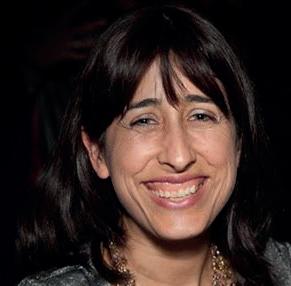
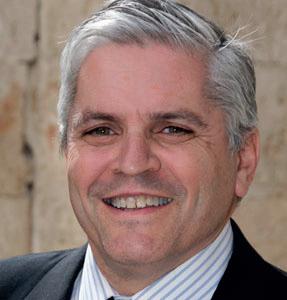

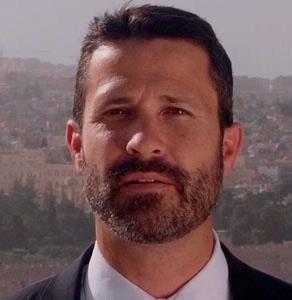
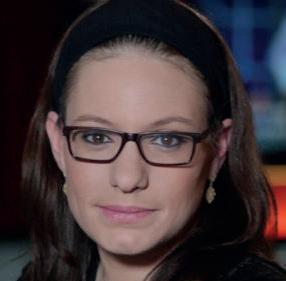

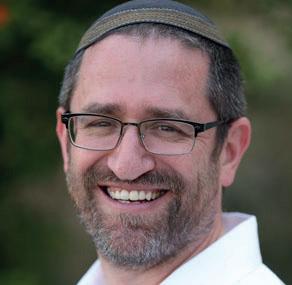
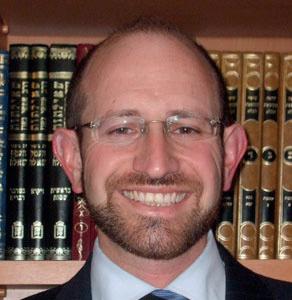
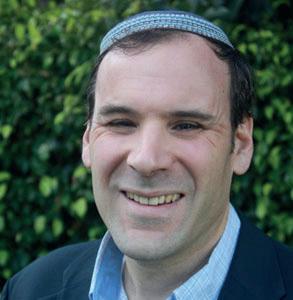

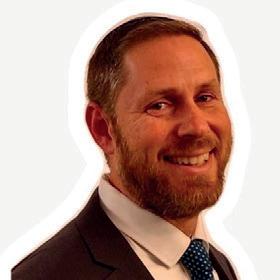
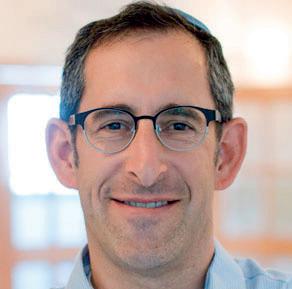

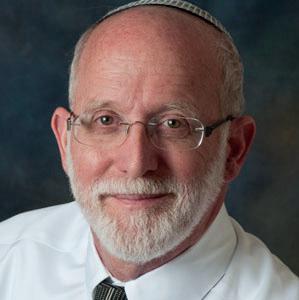
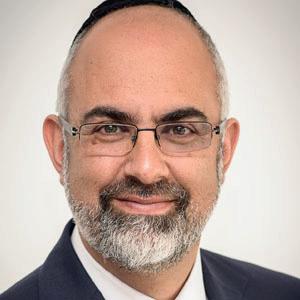
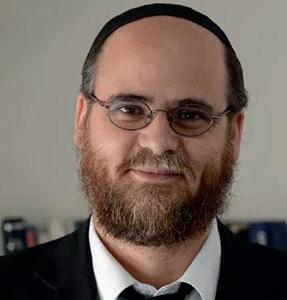

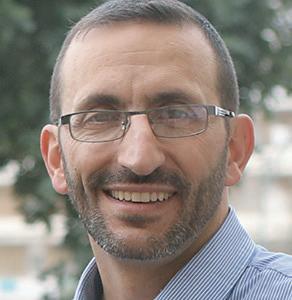
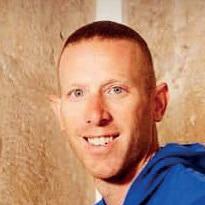



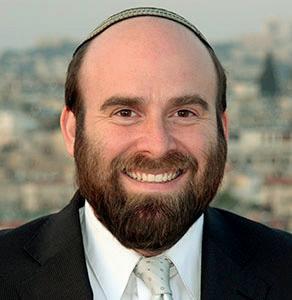
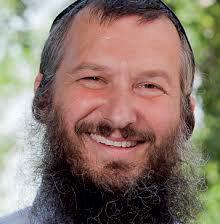
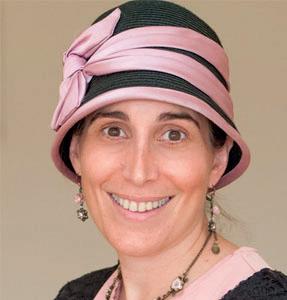


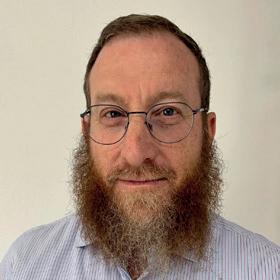


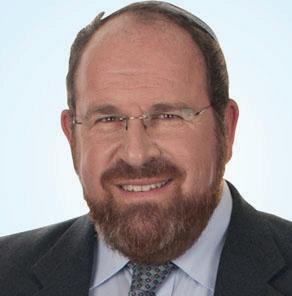

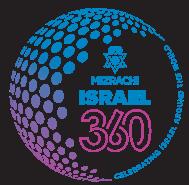
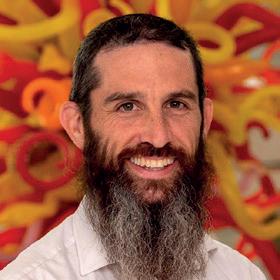
WITH GRATEFUL THANKS TO THE FOUNDING SPONSORS OF HAMIZRACHI THE L AMM FAMILY OF MELBOURNE, AUSTRALIA UK SPECIAL EDITION WEEKEND OF INSPIRATION 120 YEARS OF RELIGIOUS ZIONISM E st. 1902 PARSHA WEEKLY INSPIRATION MIZR A C H I U K ’ S WEEKEND O F 1 1 1 4 M AY 202 3 R a bbanitAtara Eis R a bba itPesha Fisch R av Bin yFreedman D r TovaGanzel R av Jer myGimpel S ivan Rahav Meir R a bba tTehila Gimp R av YaminGoldsmith R av Yehoshua Grunst R av Sh lom Hammer R a bbanitKaren Hochh user R av Je eHorn R av Al Israel G i l Ho man R av Menachem Leibta R av Anthony Manning R av DavidMilston R av Da nyMirvis R av DoronPerez Ta mir G odman RavSharon Shalom R av Eli hu Silverma R av JohnnySolomon R av Reuven Taragin R av GidonWeitzman R a bbanitShani Tarag R av AriKahn R av DavidKatz R av AviKay D evorahKay R av Jo Kenigsberg R av Shlomo Kimche R av YosefZvi Rimon R av Do Ber Cohen HAMIZRACHI Final 5.indd 1 05/05/2023 13:20
+972 (0)2 620 9000
PRESIDENT Mr. Kurt Rothschild
CO-PRESIDENT
Rabbi Yechiel Wasserman CHAIRMAN
Mr. Harvey Blitz
CEO & EXECUTIVE CHAIRMAN
Rabbi Doron Perez
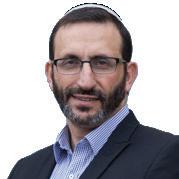
DEPUTY CEO
Rabbi Danny Mirvis

EDUCATIONAL DIRECTORS
Rabbi Reuven Taragin
Rabbanit Shani Taragin
World Mizrachi is the global Religious Zionist movement, spreading Torat Eretz Yisrael across the world and strengthening the bond between the State of Israel and Jewish communities around the world.
Based in Jerusalem and with branches across the globe, Mizrachi – an acronym for merkaz ruchani (spiritual center) – was founded in 1902 by Rabbi Yitzchak Yaakov Reines, and is led today by Rabbi Doron Perez. Mizrachi’s role was then and remains with vigor today, to be a proactive partner and to take personal responsibility in contributing to the collective destiny of Klal Yisrael through a commitment to Torah, the Land of Israel and the People of Israel. www.mizrachi.org.uk
uk@mizrachi.org
020 8004 1948
PRESIDENT
Chief Rabbi Sir Ephraim Mirvis KBE
CHAIR OF TRUSTEES
Steven Blumgart
CHIEF EXECUTIVE
Rabbi Andrew Shaw





BOARD
Michelle Bauernfreund
Matti Fruhman
Andrew Harris
Grant Kurland
Sean Melnick
David Morris
To dedicate an issue of HaMizrachi Parasha Weekly in memory of a loved one or in celebration of a simcha, or for other HaMizrachi enquiries, please email hamizrachiweekly@mizrachi.org
To sign up to receive HaMizrachi Parasha Weekly to your email or WhatsApp, visit mizrachi.org/hamizrachiweekly
A Message from Rabbi Doron Perez



On behalf of all us at World Mizrachi, we wish all involved in the Mizrachi UK Weekend of Inspiration, much success for this remarkable event.
A big yishar koach to my friend and colleague, Rabbi Andrew Shaw, CEO of Mizrachi UK, and his team, together with Chairman of the Board of Trustees, Mr Steven Blumgart, and the Board for their wonderful work in taking Mizrachi to great heights in the UK in general and in particular for this incredible event.
Bringing so many world-class speakers to scores of communities across the UK is a huge undertaking and a great achievement on so many levels. May the Torah shared over this weekend deeply enhance our connection to Am Yisrael, Torat Yisrael and Eretz Yisrael - especially as we celebrate the historic milestone of 75 years of our beloved State of Israel.
We are grateful that many of our World Mizrachi professional staff are participating in this program – Rav Danny Mirvis, Deputy CEO, Rav Reuven and Rabbanit Shani Taragin our Educational Directors and myself as well as members of our Mizrachi Speakers Bureau.
Shabbat Shalom and Behatzlacha Raba!
Rabbi Doron Perez Executive Chairman World Mizrachi


To subscribe to our weekly newsletter which includes the HaMizrachi Parsha Weekly, please email uk@mizrachi.org
EDITOR Rabbi Reuven Taragin | ASSISTANT EDITOR Esther Shafier




ASSOCIATE EDITORS Ari Levine Josh Maurer Yaakov Panitch Ian Schwartz
CREATIVE DIRECTOR Leah Rubin
PARSHA WEEKLY PARSHAT BEHAR-BECHUKOTAI 5783 • 2023 WEEKEND OF INSPIRATION SPECIAL INSIDE Chief Rabbi Ephraim Mirvis 3 Rabbi Andrew Shaw 4 Rabbi Yosef Zvi Rimon 5 Rabbi Doron Perez 6 Rabbi Reuven Taragin 8 Rabbanit Shani Taragin 9 Sivan Rahav Meir & Yedidya Meir 10 Rabbi Danny Mirvis 11 Rabbi Eli Mansour 19 Rabbi Lord Jonathan Sacks zt”l 20 Rabbi Menachem Leibtag 22 Rabbi Yehoshua Grunstein 23 Rabbi Hershel Schachter shlit”a 24 Rabbi Shalom Rosner 26 Rabbanit Yemima Mizrachi 27 PARSHA WEEKLY 120 YEARS OF RELIGIOUS ZIONISM
1902
www.mizrachi.tv office@mizrachi.org
Est.
www.mizrachi.org
2
TORAT MIZRACHI PRESIDENT, MIZRACHI UK
True Freedom
Chief Rabbi Sir Ephraim Mirvis KBE
Those who acquire slaves, acquire masters for themselves. That is how the Talmud explains the concept of the ‘eved ivri’, the Hebrew slave which is referred to in parashat Behar. Actually, such a person was far from being a slave – he was more like a daytime worker with many privileges. Parashat Behar gives us a mitzvah relating to the ‘yovel’, the jubilee year, ‘ukratem dror’ you must proclaim liberty for every person in the land. It was a year through which the people were going to experience their freedom, and as a result they needed to free their slaves. Rashi explains that this even included a slave who had not yet served the regular six years. It also included one who had elected to stay on beyond six years! All slaves had to be freed.
The Pnei Yehoshua gives a beautiful perush. He tells us that in order to experience and appreciate our freedom, we
needed to give freedom to others. You can only truly value freedom for yourself if you value the freedom that others are entitled to.
We find the same principle in other areas of human activity. For example with regard to the concept of honour, in Pirkei Avot the question is asked “eizehu mechubad”, who is an honourable person? And the answer is “hamechabd et habriyot” – it’s somebody who honours others. You are the most honourable person if you respect the honour that’s due to other people.
Perhaps the finest example of all comes from the name ‘Moshe’. Why was Moses given that name? The Torah says “Ki min ha’mayim meshitiyhu”, it is because he was drawn out of water – Pharaoh’s daughter saved his life, when as a baby he was taken from the waters of the Nile. But in that case, his name should have been ‘Mashui’ – ‘the one who was
drawn’. ‘Moshe’ means the one who draws others out! This indicates that Moshe would receive inspiration from his own experiences having been drawn out but also devote his life to draw others out of water and out of trouble. This is what inspired him to lead our people through the waters of the Red Sea and also to draw water out of a rock for the people to drink.
He felt that he had been saved only so that he might use his capacity to save the lives of others.
Therefore we learn that you are truly free if you give freedom to others. You are only truly honourable if you honour others. You can only truly experience and appreciate life if you give life to others. Therefore what defines us as human beings is not so much what we have, but rather what we give to the world around us.
A Message from Chief Rabbi Sir Ephraim Mirvis
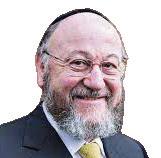
I would like to extend my very best wishes to Rabbi Andrew Shaw and Mizrachi UK on the occasion of the forthcoming ‘Weekend of Inspiration’.
You have lined up a wonderful array of outstanding presenters for this entire weekend and I have no doubt that their presentations will provide much information and inspiration for their audiences.
The staging of this impressive feast of Torah study acknowledges the role of Torat Yisrael as the pillar upon which the values and principles of the Jewish nation stands. May we deepen our recognition of this through this important weekend of learning for our community and may we achieve our shared aspiration lehagdil Torah uleha’adira - to magnify Torah and bring glory to its name.
With my best wishes for beracha vehatzlacha,
Chief Rabbi Sir Ephraim Mirvis KBE
Chief Rabbi of the United Hebrew Congregations of the Commonwealth President, Mizrachi UK
PARSHA WEEKLY PARSHAT BEHAR-BECHUKOTAI 5783 • 2023 WEEKEND OF INSPIRATION SPECIAL
Chief Rabbi of the United Hebrew Congregations of the Commonwealth President, Mizrachi UK
3
WILL BE SPEAKING AT THE DAY OF INSPIRATION
The Weekend of Inspiration 2023
Rabbi Andrew Shaw Chief Executive, Mizrachi UK
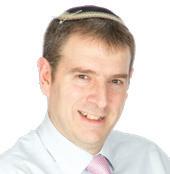

It began in 2016, the vision of Rabbi Jeremy Lawrence of Kinloss. To create a day, during the three weeks between Yom Ha’atzmaut and Yom Yerushalayim where his community would learn from the best in the Religious Zionist world. With a mixture of local and international speakers (on skype) the idea of the Day of Inspiration was born.


In 2017 Mizrachi UK were asked to help to grow the concept and we created the Weekend of Inspiration and made sure all international speakers were live. In that year we brought over thirteen speakers and supported twenty-one communities in London and Manchester. The actual Day of Inspiration attracted over 400 people at Kinloss.
2018 saw an expansion of the idea as more and more communities asked to be included. Seventeen speakers visited thirty-one communities and Leeds were added to cities that we impacted. The Day of Inspiration grew to over 500 people.
By 2019 and our growth in Manchester led to the development of two separate Days of Inspiration in Kinloss, London
BE IN CENTRAL SYNAGOGUE FOR SHABBAT
and Stenecourt, Manchester as well as launches across the UK on Thursday night. Speakers travelled between the two venues on the Sunday and close to 1000 people attended in either London or Manchester. That year we brought our biggest contingent thus far from Israel –twenty-six outstanding educators who inspired forty-two communities across London, Leeds and Manchester. After two years away due the pandemic, we emerged last year in 2022 with, what was, up to then, our biggest and most ambitious Weekend of Inspiration yet. Part of the reason for the expansion was the fact that it was Shabbat UK and the Chief Rabbi encouraged us to bring even more speakers to enhance even more communities for Shabbat UK.
So last year we brought over thirty-two speakers, who spoke across five different cities – London, Manchester, Leeds, Liverpool and Birmingham – it was a remarkable achievement. We also had for the first time a Yom Iyun on Friday morning in five secondary schools for over 2500 students.


So, what does 2023 bring? Well, we have grown again, thirty-four speakers are joining us this year, who will be venturing all across the UK for Shabbat to over fifty communities as well as speaking on Friday to almost 3000 students across our Jewish secondary schools.
The Day of Inspiration is once again in our three locations – Kinloss, Stenecourt and South Hampstead – a central London venue to hopefully attract even more people to the day of learning. With 71 shiurim, 12 Keynotes, 25 hours and 35 educators it is a day not to be missed. Inside this special HaMizrachi - Weekend of Inspiration edition – you will find the full schedules of all three locations on Sunday.

I very much hope you are inspired by the Mizrachi educators over Shabbat and I hope to see you on Sunday!
It will be a day to remember!
Shabbat Shalom
Weekend of Inspiration, 2022 (PHOTOS: TAMARA KAY)
PARSHA WEEKLY
5783 • 2023 WEEKEND OF INSPIRATION SPECIAL
PARSHAT BEHAR-BECHUKOTAI
TORAT MIZRACHI CHIEF EXECUTIVE, MIZRACHI UK
4
WILL
Halachic Q&A
Rabbi Yosef Zvi Rimon Head, Mizrachi Rabbinic Council | Rabbi of the Gush Etzion Regional Council
 Rosh Yeshivah, Jerusalem College of Technology | Founder and Chairman, Sulamot and La'Ofek
Rosh Yeshivah, Jerusalem College of Technology | Founder and Chairman, Sulamot and La'Ofek
Question: We were invited to our friend’s home for Friday night dinner. They live about 45 minutes away and they are taking in Shabbat early. What should we do about hadlakat neirot? If we light at plag at home, we will miss the tefillah and arrive late for dinner.
Answer: There is no good solution. You should turn lights on in your home (better to use LED lights if you have) in honor of Shabbat before plag hamincha and without a bracha. Light candles with a bracha at the home where you are eating and have in mind during the bracha for the lights at home. This is not ideal as it is preferable to light where you sleep (see Halacha Mimkorah – Shabbos 3, for more details), but we can allow for this when there is a reason to eat elsewhere.
Question: I may have missed counting sefirah yesterday, but I do not remember. Can I continue counting with a bracha?
Answer: Shu”t Terumat Hadeshen addresses this case, and writes that one should continue counting with a bracha. The Shulchan Aruch (OC 489:8) quotes this as the proper practice. The Pri Chadash explains the reasoning behind this ruling: In general, we have a halachic principle that two doubts about a certain case can combine to allow us to rule leniently (even if each doubt on its own would not have been strong enough). This is called a sfeik-sfeika. In our case, there are two sfeikot:
• Doubt #1: Doubt whether or not the person counted
this case, the dough is fully considered bread and requires ‘hamotzi’.
Question: Is there a prohibition of saying G-d’s name in vain in another language? For example, can one say “G-d”?
Answer: This matter is subject to dispute. The Shach (YD 179) writes that one may not erase names of G-d written in other languages. The Rambam’s formulation is the same. Based on this, Rebbe Akiva Eiger assumed that one could say G-d’s name in another language (given that only a prohibition to erase was mentioned).
On the other hand, the Chayei Adam understood that one may not say G-d’s name in another language.
Therefore, many are lenient based on Rebbe Akiva Eiger. However, some do not say the full name of G-d in other languages but rather change it a bit to satisfy the opinion of the Chayei Adam as well. This is my practice.
• Doubt #2: Halachic doubt regarding the ruling of a person who forgot to count. Most Rishonim hold that one who forgets to count can continue counting with a bracha, even though we generally do not paskin this way. Because we have two sfeikot together, you may continue counting with a bracha (MB 489:38).
The Ketav Sofer explains the leniency a bit differently. He writes that fundamentally we hold like Tosfot’s opinion that one can count even if he forgot. The reason we do not do so is because of safek brachot lehakel. Nevertheless, once we have even another safek (even if it is weaker), there is enough reason to allow one to count with a bracha.
2) The second type involves steaming the dough directly. Shu”t Ginat Veradim writes that cooking with steam is considered halachic cooking, and his teshuva is quoted in the Kaf Hachaim (and accepted by Or Letzion, v’Zot Habracha, Birur Halacha). Therefore, steamed bread of this form is considered just like cooked dough, which the Shulchan Aruch writes (OC 169:13) is not considered bread. Nevertheless, because this topic is subject to dispute, the Shulchan Aruch writes that ideally, a G-d fearing person should only eat this type of food in the context of a seuda so the bracha is already covered (Rema - because it looks like bread). However, the basic ruling meikar hadin is that the bracha is mezonot and ‘al hamichya’ (SA, Rema, MB, Kaf Hachayim) even if you eat an amount to be satisfied (MB 169:75). The Mishnah Berurah writes that lechatchila one can make a mezonot if the piece is less than a kezayit.
Therefore, the answer to your questions depends on the type of steamed bread.
Question: At weddings, I often see steamed bread at the kabbalat panim. What is the proper bracha to make?
There are two ways to cook with steam.
1) The first type involves steaming the vessel from the outside. The steam does not directly interact with the dough. In
Question: Is there an issue with doing haga’lah on a scratched pot?
Answer: If the pot is cleaned well, it is fine. If you aren’t sure, you can do libun kal at the spot which was difficult to clean and then do hag’alah on the entire pot afterwards.
(You can find videos on Youtube by Rav Rimon with guided explanations of how to do libun kal and other kashering procedures).
PARSHA WEEKLY PARSHAT BEHAR-BECHUKOTAI 5783 • 2023 WEEKEND OF INSPIRATION SPECIAL
Compiled by Yaakov Panitch. WILL BE IN HENDON FOR SHABBAT 5
TORAT MIZRACHI RAV RIMON
Human ‘Havings’, Human ‘Doings’ or Human Beings? The Gift of Shabbat
Rabbi Doron Perez Executive Chairman, World Mizrachi

Remarkably, since the turn of the twenty-first century, shopping malls in the Western world occupy more real estate than schools.
G.K. Chesterton once said that “education is the soul of a society as it passes from one generation to the next.” Our privileged and affluent generation invests more time and resources in the myriad tastes and preferences of the body than it does in the needs and aspirations of the soul. Before our eyes, material gratification has trumped spiritual meaning; consumerism has superseded education.
Human ‘Havings’
In recent years, shopping malls have been supplanted by internet consumerism, a shift speeded by the pandemic. In the comfort of our home and with the click of a button on Amazon, AliExpress and the like, we can order any product from almost anywhere in the world and have it delivered to our doorstep within a few days. We have become human “havings,” as what we have and possess becomes ever more central to our lives. Some social commentators have termed our current state of affairs as “affluenza” –an all-consuming ailment and “a painful, contagious, socially transmitted condition of overload, debt, anxiety and waste resulting from the dogged pursuit of more.”1
Incredibly, there is no Hebrew word for the English word “have”; the closest equivalent is “יל שי”, literally translated as “there is to me.” Why is Hebrew missing
such an elemental word? It seems that Judaism has a radically different attitude toward the things we own. The word “have” implies that what I own is part of me, that it is mine. But in the Torah’s view, we must never be defined by what we own, for what we have is not truly ours. Ultimately, everything in the world belongs to G-d – האולמו ץראה ‘הל –“The entire world and all in it belongs to Hashem.”2
G-d, of course, has bestowed upon us the right to property – to legally own property and possessions as part of the course of normative human interaction. This right, however, comes with terms and limits. The Torah cites two powerful examples of these limits – the shemitta year and the yovel (Jubilee) year. During the shemitta year, all agricultural land owned by Jews is rendered ownerless, allowing everyone to partake of its produce. And at the end of the shemitta year, all money that we have lent to others is relinquished and the debts are wiped away.3 An even stronger limitation on property ownership is implemented during the yovel year, when all land acquired from others is returned to its original owners, ץראה לכ יל יכ, “for the whole world belongs to Me.”4
Shemitta and yovel underscore the need to regulate private wealth and consumerism and to ensure they do not become the dominant values in a Jewish society. We must never be defined by what we have. We are merely the custodians of our possessions, transient caretakers called upon to use our possessions for G-dly causes greater than ourselves.
Human ‘Doings’
As we have all too often become human “havings,” caught up in a culture of consumerism, we have also allowed ourselves to become human “doings.” In our market and industry-driven economy, there is a premium placed on productivity. The quicker we are able to manufacture and produce at industrial levels, the more successful we become. The technological interconnectedness of the global economy has only exacerbated our frenetic work pace, as colleagues and clients throughout the world reach out to us day and night with the expectation of an immediate response. Our output-driven lives are dictated by urgency, deadlines and performance. We have become human “doings,” constantly on the go. You snooze, you lose!
It is true that little in life is accomplished without hard work, dedication, toil and a proactive focus on getting things done. The great challenge of life, however, is to achieve balance. It is the transformative concept of Shabbat which aims to restore this critical balance.
Human ‘Beings’
To ensure that the dual impulses of consumerism and productivity, of having and doing, are not all-consuming, we are blessed – every single week – with the opportunity to be human “beings,” to simply be. By prohibiting all acts of creative work and shaping the world for material gain, Shabbat celebrates this state of simply being. It allows us to experience one day each week without producing or procuring, transforming
PARSHA WEEKLY PARSHAT BEHAR-BECHUKOTAI 5783 • 2023 WEEKEND OF INSPIRATION SPECIAL TORAT MIZRACHI EXECUTIVE CHAIRMAN
6
WILL BE IN HENDON AND KINLOSS FOR SHABBAT
TORAT MIZRACHI EXECUTIVE CHAIRMAN
us from human “havings” and human “doings” into human “beings.” Shabbat alters our mindset, focusing us not on what is yet to be done but rather on what has already been achieved; not on what we lack, but on what we already have. Shabbat prohibits us from dwelling on our concerns for the future, demanding that we be fully present. It calls upon us to give full attention to that which is important and meaningful as opposed to that which is urgent and pressing. We focus not on results but on the relationships that truly matter – with Hashem, ourselves, our spouses and family and friends.
How do we achieve this state of mind? Our Sages offer a remarkable insight which is hinted to in the ten commandments: “Six days you shall labor and complete all your work but the seventh day is a Shabbat to Hashem.” The verse states that we must complete all of our work before Shabbat. Our Sages point out that this is an impossible task. When do we ever complete everything we set out to do? We always have unfinished tasks that we need to continue working on after Shabbat! They explain that there is only one place in which you can, indeed, “complete all your work” – in the precincts of the mind. G-d has commanded us to enter Shabbat as if all of our work is done. Shabbat calls upon us to alter
our frame of mind, to transcend the daily vicissitudes of life and enter into an oasis in time and a wellspring of mindfulness.5
Shabbat & Shemitta
One of many gifts that the Jewish people have given the world is the magical concept of Shabbat. It is a time to balance our proactive, producing and procuring selves with our mindful and spiritual selves.

This is precisely the focal point of both the weekly Shabbat as well as the sabbatical year. Indeed, the Torah refers to the sabbatical year as “shabbat” far more frequently than it uses its other names such as shemitta and shevi’it 6 Only Shabbat and shemitta are called by the unique term םשהל תבש, “Shabbat to Hashem,” for both are unique times dedicated to G-d and heavenly pursuits.
For millennia, Shabbat gave our people the strength and perspective to survive in exile. Today, in the land of Israel, Shabbat and shemitta are shaping our future. Every seven days, the economy comes to a standstill, as Jews across the Land pause and spiritually reboot. Every seven years, the Land of Israel itself and much of the agrarian economy come to a grinding halt for an entire year. It is a time for societal recalibration.
The weekly Shabbat and shemitta year are times for resetting our spiritual compass, an opportunity to give primacy to our cherished relationships and to reconnect with our core values. It is a critical time of perspective, wholeness and restoration of balance, when our self-worth stems not from what we have and what we do, but from who we are. It is a time to be truly redeemed as human beings.
1. Affluenza , John de Graaf, David Wann and Thomas H. Naylor, Berrett-Koehler Publishers (2005).
2. Tehillim 25:1.
3. When people stopped loaning money to the poor because of this law, Hillel instituted the Pruzbul to circumvent this law; see page 12 of this magazine for an explanation of the mechanics of the Pruzbul.
4. Vayikra 25:23.
5. The Midrash from the Mechilta is cited in Rashi, Shemot, 20:9.
6. See Vayikra, 25:1-8.
PARSHA WEEKLY PARSHAT BEHAR-BECHUKOTAI 5783 • 2023 WEEKEND OF INSPIRATION SPECIAL
By prohibiting all acts of creative work and shaping the world for material gain, Shabbat celebrates this state of simply being.
World of Tens
Rabbi Reuven Taragin Educational Director, World Mizrachi Dean of Overseas Students, Yeshivat Hakotel

לֹוכָי דָחֶא רָמֲאַמְב אֹלֲהַו ,רַמֹול ד ומְלַת הַמו .םָלֹועָה אָרְבִנ תֹורָמֲאַמ הָרָׂשֲעַב
,תֹורָמֲאַמ הָרָׂשֲעַב אָרְבִנֶׁש םָלֹועָה תֶא ןיִדְבַאְמֶׁש םיִעָׁשְרָה ןִמ עַרָפִהְל אָלֶא (א:ה תובא) :תֹורָמֲאַמ הָרָׂשֲעַב אָרְבִנֶׁש םָלֹועָה תֶא ןיִמְיַקְמֶׁש םיִקיִדַצַל בֹוט רָכָׂש ןֵתִלְו .ל ובַמַה יֵמ תֶא םֶהיֵלֲע איִבֵהֶׁש דַע ןיִאָבו ןיִסיִעְכַמ ויָה תֹורֹודַה לָכֶׁש ,ויָנָפְל
דַמָעְו םֹולָׁשַה ויָלָע וניִבָא םָהָרְבַא הָסַנְתִנ תֹונֹויְסִנ הָרָׂשֲע (ד:ה)…םָיַה
Anonymous Numerical Lists
The fifth perek of Masechet Avot diverges from the previous four in two significant ways. Firstly, the fifth perek consists predominantly of anonymous statements, as opposed to citing statements in the name of various sages. In addition, the earlier perakim focus mainly on ethics and morals, while the fifth presents numerical lists of various historical phenomena, often without delineating any ethical implication. The first half of the perek presents lists in descending numerical order. The first six mishnayot list groups of ten, the following three bringing groups of seven, and the final six bringing groups of four. The lists of ten are uniquely significant because the number ten symbolizes something full and complete. These lists appear in historical order. The perek begins with the ten ma’amarot (utterances) with which G-d created the world, then continuing with the world’s first ten generations from Adam Harishon to Noach, and the subsequent ten from Noach to Avraham. The third mishnah then mentions the ten trials Hashem used to test Avraham, the ten miracles Hashem performed on behalf of the Jewish People in Mitzrayim and at the Yam Suf, the ten ways the Jews “tested” Hashem, and, finally, the ten miracles that Hashem performed on behalf of our ancestors in the times of the Beit Hamikdash
What do these lists teach us?
Significant Actions Significantly Impact a Significant World
A closer look reveals a common theme across these lists, rooted in how the
mishnah explains the significance of the first list.
The first mishnah explains that Hashem created the world with ten ma’amarot in order to increase the reward and punishment tzadikim and resha’im (respectively) receive for their impact on the world. The multiple ma’amarot reflect the significance of each aspect of our world we are rewarded for sustaining. They should inspire us to take our role and impact seriously.
Avot D’Rebbi Natan specifies three actions as sufficient to sustain the entire world: doing one mitzvah, keeping one Shabbat, and saving one life. Man sustains the world when he emulates Hashem, as His creation included refraining from work on one Shabbat alongside the creation and sustaining of the life of one person. Each person is meant to see his actions as those that sustain or destroy the valuable world Hashem invested ten ma’amarot in. The gemara elaborates on this theme, asserting that one should always see the world as half meritorious and half liable and his own actions as the ones that determine not only his fate, but that of the entire world as well.
The Generations — Noach, Avraham and the Jewish People Subsequently, we learn how Hashem twice sustained a sinful world for a period of ten generations. Rashi explains that Hashem did this in the hope that the actions of even one person (Noach or Avraham) would justify its existence. The ten ma’amarot gave the world a chance; the ten generations gave man a chance. Though Noach’s actions were not enough to save his ten generations, Avraham’s
were. As opposed to Noach, who survived but did not influence his surroundings, Avraham influenced others and succeeded in steering at least part of the world in the right direction. Through this, he saved the world and received the reward intended for the ten generations that preceded him. Avraham was not just a righteous individual; he was able to impact his surroundings and, thereby, received the reward “of others” for his influence upon them.
In addition, the ten tests Avraham passed taught his contemporaries about the value of commitment to Hashem. Indeed, Rashi links Avraham’s ten tests to the ten ma’amarot. Avraham’s passing of the tests and his unflinching commitment to Hashem’s will, ensured a realization of the goals of creating the world. After two sets of ten generations, the ten ma’amarot were finally justified.
Avot d’Rebbi Natan connects the set of ten following on – the ten miracles – to Avraham’s ten tests. It was Avraham’s efforts that merited the miracles Hashem performed for his descendants. Hashem rewarded Avraham’s supernatural commitment with supernatural intervention on behalf of later generations of Jews. The reward Avraham received from previous generations benefited future ones as a result.
May our following Hashem’s directives and passing His tests sustain the world He created, merit His reward, and merit His performance of miracles on our behalf and on the behalf of many generations of our descendants!
Summarized by Yedidyah Rosenswasser.
PARSHA WEEKLY PARSHAT BEHAR-BECHUKOTAI 5783 • 2023 WEEKEND OF INSPIRATION SPECIAL
?תֹואְרָבִהְל
םִיַפַא ךֶרֶא הָמַכ ַעיִדֹוהְל ,ַחֹנ דַעְו םָדָאֵמ תֹורֹוד הָרָׂשֲע (ב:ה) :םָלֻכ רַכְׂש לֵבִקְו םָהָרְבַא אָבֶׁש דַע ,ןיִאָבו ןיִסיִעְכַמ ויָה תֹורֹודַה לָכֶׁש ,ויָנָפְל םִיַפַא ךֶרֶא הָמַכ ַעיִדֹוהְל ,םָהָרְבַא דַעְו ַחֹנִמ תֹורֹוד הָרָׂשֲע (ג:ה)…םָלֻכְב
לַע הָרָׂשֲעַו םִיַרְצִמְב וניֵתֹובֲאַל וׂשֲעַנ םיִסִנ הָרָׂשֲע (ה:ה)…ׁשָדְקִמַה תיֵבְב וניֵתֹובֲאַל וׂשֲעַנ םיִסִנ הָרָׂשֲע
TORAT MIZRACHI EDUCATIONAL DIRECTORS
Scan here to join Rabbi Taragin’s daily Divrei Torah WhatsApp group
PIRKEI AVOT
8
WILL
BE IN EDGWARE FOR SHABBAT
HAFTARAH - PARSHANUT ON THE PARSHA
Behar-Bechukotai:
Healing a Fractured World
Rabbanit Shani Taragin Educational Director, World Mizrachi
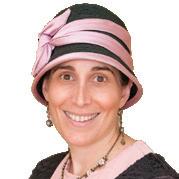
The haftarah for this week’s double parasha, Parashat Behar-Bechukotai, serves as commentary and response to the reproach (tochecha) found at the core of the parasha. This selection from the prophecies of Yirmiyahu (16:19-17:14) contains elements of curses and blessings, resonating with images from the parasha and underscoring the harsh messages. The dissonance, however, highlights significant differences between them, offering further messages.
The parallels are quite apparent as both the parasha and the haftarah relate to similar themes and contain similar imagery:
(1) Both readings juxtapose punishment involving children and altars – “And you shall consume the flesh of your sons, and the flesh of your daughters you shall consume. And I will destroy your high places and cut down your images” (Vayikra 26:2930). Yirmiyahu similarly complains –“Their altars are like the remembrance of their children” (17:2).
(2) We are taught of the punishment of exile in the parasha – “Then the land will enjoy her Sabbaths, for as long as it lies fallow...then the land will rest and will enjoy her Sabbaths... that you did not observe while you dwelled upon it” (26:34-35) as well as in the haftarah – “You shall be discontinued from your heritage that I gave to you” (17:4). (Rashi: “Against your will you will leave the land, for not having observed your Sabbaths that I commanded you, that the land may rest”).
After establishing the similarities, we may now appreciate the notable differences between the parasha and the haftarah:
(1) The blessings and curses described in the parasha are formulated in the plural and are addressed to the nation as a whole, whereas those mentioned in the haftarah are addressed to the individual, formulated in the singular. The words of the haftarah complement and teach us that in addition to national sin and punishment, each individual is accountable for his/her actions and therefore may not shirk personal responsibility to adhere to the mitzvot.
(2) The parasha begins with blessings, i.e. the reward that awaits the nation if it follows the path of Torah and mitzvoth, and then continues with warnings of punishments. The order in the haftarah is reversed; Yirmiyahu begins with rebuke: “Cursed is the man who trusts in mortals” (17:5), and only afterwards assures: “Blessed is the man who trusts in G-d” (17:7). This creates a chiasm between the parsha and the haftarah wherein the latter complements and balances the former. The parasha begins with eleven pesukim of blessings followed by thirty pesukim of curses! The haftarah contains a perfect balance of blessings and curses, creating an equilibrium and closure of blessings: Blessing – curse – curse –blessing. (Perhaps this is the basis for ChaZa”L to extrapolate more blessings than curses in the parasha – see Bava Batra 88b.)
(3) The parasha presents two opposite poles of those who are blessed vs. cursed: “Blessed are those who walk in G-d’s statutes and observe His judgments”, and “cursed are those who despise the statutes”. In contrast, Yirmiyahu describes two similar men – “blessed is the man (gever) who trusts in G-d,” and “cursed is the man who trusts in man”. The difference between them is only the object of their trust;
therefore, there is hope for one to transfer his faith in man to faith in G-d.
Perhaps the greatest commentary on the parasha is the conclusion of the haftarah: “Heal me, O Lord, and I shall be healed; save me, and I shall be saved: for You are my praise” (17:14). Whereas we may have anticipated some consolation after the rebuke of the Torah and the harsh prophecy of the navi, the haftarah does not describe comfort of redemption; it merely expresses a wish and a desire for salvation and healing that are not yet visible. It begins a new section of distress and persecution as Yirmiyahu describes his contentions with his iniquitous audience. His plea for healing and salvation does not herald salvation, but rather is a petition and prayer in anticipation of continued struggle.
Parshat Bechukotai describes the vicissitudes that will befall Am Yisrael in the wake of their actions. Hashem will bring upon them “a sword that will avenge His covenant” and make them flee before their enemies, and one day He will return them to the desolate land in the wake of the covenant that had been made with their forefathers. One component, however, is missing; we don’t hear of the peoples’ reaction and response to the troubles that will befall them. This is the primary goal of the haftarah – to complete the picture and serve as a guide for response in times of affliction. The haftarah begins and ends with expressions of trust. In the midst of harsh realities, more than portraying a picture of optimism and reward, the navi provides us with hope in our relationship with Hashem, trusting that “nothing in the world happens by chance, and that whatever happens under the sun is all by G-d’s decree.” (Chazon Ish, Emunah U’Bitachon).
PARSHA WEEKLY PARSHAT BEHAR-BECHUKOTAI 5783 • 2023 WEEKEND OF INSPIRATION SPECIAL TORAT MIZRACHI EDUCATIONAL
DIRECTORS
9
WILL BE IN EDGWARE FOR SHABBAT
Everyone matters!
Sivan Rahav Meir and Yedidya Meir World Mizrachi Scholars-in-Residence
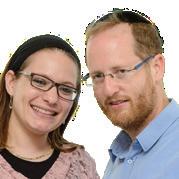
We are the height of parent-teacher school conferences. These days are consequential for teachers, parents, and students. Here is a pertinent point from this week’s Torah portion, parashat Behar.
The Parasha describes someone whose financial condition has begun to deteriorate, when we are commanded: “And you shall support him.” In other words, we must pay attention and help him from the start so that he does not reach financial ruin. Rashi writes that this is like a donkey carrying a heavy load. If the load begins to sway a little while on the donkey’s back, one person can stabilize it. But once it falls to the ground, not even five people will be able to put it back in place.
Our commentators explain that this principle is also relevant to education. We need to identify problems at their inception and address them with wisdom before it's too late. When a young person begins to go downhill and is identified as an at-risk student, he suddenly receives lots of special attention, counseling, and pampering. What would have happened had he received such attention a year earlier, if signs of distress had been recognized and he had received support at that time?
Not only in the area of education is it worthwhile to recognize problems at an early stage. This is also true regarding marriage (when there are initial signs of tension it’s preferable to go for counseling and not to wake up only after an explosion), and it is true regarding all kinds of emotional crises that would have been better treated prior to worsening, as well as physical ailments and diseases that are less severe when caught in their early stages. “And you shall support him” – early, in advance, before it’s too late.
The parasha calls upon us to be aware, to listen, to open our eyes in relation to ourselves and to our children, to others and to the world at large: What are the little fissures visible around us and what are we going to do about them?
I don’t want to quote all the curses and disastrous prognostications that appear in Bechukotai. There is a long list of diseases, terrors, and persecutions and all of us hope that most of them are already behind us. But there is one curse that should make us pause:
“I will bring fear in their hearts in the lands of their enemies, and the sound of a rustling leaf will pursue them; they will flee as one flees the sword, and they will fall, but there will be no pursuer” (Leviticus 26:36).
Read this well. We are talking about people whom no one is chasing. They hear the sound of a leaf moving in the wind and think they are in danger. They run away and stumble over each other even though their fear is only imaginary. They do not know how to distinguish between a real danger and an imaginary fear. Rashi comments on this as follows: “For they will have fear in their hearts, and every moment they will think that someone is chasing them.”
We definitely need to contend with the deeply troubling circumstances and events in the world around us. But all of us need to check that we do not run away from troubles that we ourselves invent, that our hearts are not full of fear that has no basis in reality.
Mazal tov. This Shabbat we read the Torah portion of Bechukotai. It is the last parasha in the Book of Leviticus, the most challenging of the Five Books of Moses.
In the Book of Genesis, the world is created. In the Book of Exodus, we leave Egypt. The Book of Numbers is full of fascinating stories of our desert wanderings and the Book of Deuteronomy features the emotional parting speech of Moshe Rabbeinu. And the Book of Leviticus? It is mainly comprised of commands and instructions, is virtually devoid of stories, and is preoccupied with the sacrificial service in the Mishkan.
Many commentators note that it is precisely because of its didactic content that the Book of Leviticus is the most important of the five books. The Torah is not a suspense story or a melodramatic reality show. The Torah demands connection, immersion, and devotion – not only when the content is easy or entertaining. If we do not have patience for the Book of Leviticus, how will we develop patience for the challenging aspects of our lives? Do we wish to become people who search only for excitement and run away from challenges?
The Jewish American author Herman Wouk, a winner of the Pulitzer Prize, once wrote about Jewish devotion in this way: “A publisher once decided to publish a simple version of the Bible. He adapted the Five Books of Moses in a manner that simply eliminated all the laws. The Book of Leviticus was reduced to about half a page. But the Jews never cut out a single word of the Torah. The plan for building the Mishkan and the story of the splitting of the Red Sea are of equal value in their eyes.”
On Shabbat, we prove this once again when we complete the reading of all 859 verses in the Book of Leviticus.
PARSHA WEEKLY PARSHAT BEHAR-BECHUKOTAI 5783 • 2023 WEEKEND OF INSPIRATION SPECIAL TORAT MIZRACHI SHLICHIM
◼ ◼ ◼
◼ ◼ ◼
10
WILL BE IN KINLOSS AND HENDON FOR SHABBAT
CEO
For the Shabbat Table
Rabbi Danny Mirvis Deputy CEO, World Mizrachi Rabbi of Ohel Moshe Synagogue, Herzliya Pituach

“If you shall follow my decrees and keep my Mitzvot and perform them…” (Vayikra 26:3).
This week’s second Parsha begins with the blessings that await us if we stay true to Hashem and His commandments. Within the blessings of achieving peace and military success, we come across a mathematical problem: “You shall pursue your enemies and they shall fall before you by the sword. Five of you shall pursue a hundred, and a hundred of you shall pursue ten thousand and your enemies shall fall before you by the sword” (Vayikra 26:7-8).
If five shall pursue a hundred, it means each person will have the ability to pursue twenty enemies. Based on that, a hundred should only be able to pursue two thousand enemies – not the ten thousand we find in the verse.
Rashi explains the apparent lack of proportion:
“And is that the correct calculation? Surely it should have only said that a hundred of you shall pursue two thousand! However, you cannot compare a few who perform the Torah to many who perform the Torah”.
Rashi explains that when many people come together to perform the Torah, not only does the total strength grow, but so do the strength and potential of each and every individual. Therefore, whereas five could only chase away a hundred, a hundred could chase away ten thousand. Herein lies the vital lesson of the strength that comes through unity.
For example, praying as part of a Minyan or even larger community has three benefits in this regard. First, I increase the overall ability of the gathering, for “B’Rov

Am Hadrat Melech” – In (the presence of) many people, the King is glorified. Second, my personal potential for meaningful prayer grows as part of the community. Third, I increase the individual potential of every other member of the group.
Hence, the benefits of unity extend far beyond avoiding the dangers of division. Unity in and of itself empowers us all to achieve more, as individuals, as communities, and as a nation, coming together to work towards elevated goals.
By prioritising unity and internalising its great power, may we all be strengthened as a result.
Shabbat Shalom!
PARSHA WEEKLY PARSHAT BEHAR-BECHUKOTAI 5783 • 2023 WEEKEND OF INSPIRATION SPECIAL
PARSHAT HASHAVUA DEPUTY
WILL BE IN MANCHESTER FOR SHABBAT 11
INSPIRATION
MORNING SESSION
Shacharit & Breakfast- 08:00
Session 1 - 09:00
Rav Gideon Weitzman
The Dry Bones - The Current State of Medinat Yisrael
Rav Eliyahu Silverman
Entering the Holy Land: When Spiritual and Material Come Together
Rav Doron Perez - 09:50
Rav Shlomo Kimche
Who are our Enemies and How can we Overcome them?
Book Launch: The Judicial Reform and a Vision for Unity in Israel
Session 2 - 10:35
Rav David Milston Negotiations
Rav Jeremy Gimpel
Waking Up: The Ancient Judean Way to Start Your Day. A Life Changing Tefilah Workshop
Rabbanit Karen Hochhauser
The Halachik and Hashkafic Implications of Failure
Rav Binny Freedman
Why are we Tested? How does the Torah Respond to the Dee Tragedy?
Rav Eliyahu Silverman
When the Greatest of our People Ask ‘Why’
Rav Menachem Leibtag
The Biblical meaning of “emunah” and how it affects our understanding of Sefer Bamidbar
Session 3 - 11:20
Rabbanit Karen Hochhauser
It’s almost Summertime: Chassidic Insights on how to Holiday Right
Rav Gidon Weitzman
Terminating A Pregnancy in Halacha
Rav David Milston
Earning a Living
Rav Shlomo Kimche
Terror, Grief and Jewish Israeli Resilience Today
MIZRACHI UK ’ S DAY OF
HAMIZRACHI Final 5.indd 2 05/05/2023 13:20 HAMIZRACHI
THIS SUNDAY @ KINLOSS
AFTERNOON SESSION
Chief Rabbi Sir Ephraim Mirvis KBE - 12:05
Live Recording with The Koren Podcast: Al Regel Aḥat
Session 4/Lunch - 12:50
Gil Hoffman
Have all the Blessings and Curses Come True?
Rabbanit Tehila and Rabbi Jeremy Gimpel
The Judean Experiment: Jewish wisdom learned on the journey from the Suburbs of Jerusalem to the Edge of Jewish settlement in the Land of Israel.
Session 5/Lunch - 13:35
Sivan Rahav Meir
Why proud Jews today are heroes?
Rabbanit Pesha Fisher
Love of the Land: To Dwell and to Serve
Rav Menachem Liebtag
The Omer - all about Sinai, or all about the Land of Israel; [but who’s counting?]
Rav Yosef Zvi Rimon & Rav Joel Kenigsberg - 14:15
How Halacha Deals with Technological Breakthroughs
Rav Yosef Zvi Rimon
How to Deal with Machloket - How to ‘Fight’ in the Right Way
Session 6 - 15:00
Rav Ari Kahn
“Unraveling A Moral Enigma”
Deciphering a Talmudic
Passage about the moment destruction was decreed
Rav Sharon Shalom
Between Subjective Identity and Objective Identify –A Case Study of Ethiopian Immigrants in Israel
Sivan Rahav Meir
A Journal from my Trips to Jewish Communities around the World
Rav Yamin Goldsmith
Rav Kook’s Challenge to Today’s Jewish Community
Rav Yehoshua Grunstein
The Book or the Jew: Who Trumps who?
13:20
HAMIZRACHI Final 5.indd 3 05/05/2023 13:20
AFTERNOON SESSION THIS
Session 7 - 15:40
Rav Anthony Manning
What is Hashkafa and Where Does It Come From?
Rav Johnny Solomon
A Day in the Life of #theVirtualRabbi
Rav Ari Kahn
“The Palace of the King”
The Fight for Establishing Halakha in Modern Israel
Dr Tova Ganzel
Celebrating 75 Years: A Comparison of the Biblical Return to Zion at the Time of Cyrus and the Modern State of Israel.
Rav Yehoshua Grunstein
By Consent or by Coercion?
Session 8 - 16:20
Rav Yamin Goldsmith
Medinat Yisrael: Is this what we’ve been Davening for?
Rav Reuven Taragin
How to Live a Life Worth
Living
Rav Johnny Solomon
Bitachon: A Spiritual Coaching Workshop
Rabbanit Shani Taragin
Yom Yerushalayim : Perfect Prelude to Shavuot
Rabbanit Atara Eis
Will the Third Temple Fall from Heaven? Human vs. Divine Agency in the Redemption Process
Rav David Katz
Is Instagram Permitted?
Privacy Concerns & Social Media in Halacha & Hashkafa
Dr Tova Ganzel
The Hametz Law and the Complexities of ReligiousSecular Relations in Israel
Rabbanit Shani Taragin - 17:00
Yerushalayim - Site & Sight of Selection & Sacrifice
SUNDAY BOOK AT WWW.MIZRACHI.ORG.UK/DOI
HAMIZRACHI Final 5.indd 4 05/05/2023 13:20 HAMIZRACHI
AFTERNOON SESSION @ KINLOSS
Session 9 - 17:45
Rav Jesse Horn
Why Choose a Nation and Why Choose us?
Rav David Katz
Is DNA and other Forensic Evidence admissible in a Jewish Court?
Rav Dov Ber Cohen
The Keys to Personal Growth
Rav Ari & Rabbanit Devorah Kay
Joy and Sorrow a Story of Resilience.
Session 10 - 18:30
Rav Alex Israel
Who Chose Jerusalem? King David or God?
Rav Sharon Shalom
Are we Going up to Jerusalem or Going Down? A case study of Ethiopian Jews
Rav Danny Mirvis
Who Was Left out of Pirkei Avot, and Why?
Rav Yosef Zvi Rimon
Yom Yerushalayim - Why do only Religious Jews Celebrate it?
Rav Jesse Horn
Sefirat HaOmer: Using the Brisker Approach to Crack Open a Sugya
Rabbanit Devorah Kay
You be ‘The Choice’ How to Live It, When It Doesn’t go to Plan.
Mincha & Dinner - 19:15
Rav Avi Kay
“The Multi Coloured Tallit Bag”, Finding Strength Through Unity and Diversity in Eretz Yisrael
Rav Shalom Hammer
Engaging the Disengaged
- Why are so many Young Adults Throughout the Diaspora Disenchanted with Israel?
13:20
HAMIZRACHI Final 5.indd 5 05/05/2023 13:20
THIS SUNDAY @ KINLOSS
EVENING SESSION
Senior Israeli Dignitary - 20:15
Session 11 - 21:00
Rav Reuven Taragin
How To Live a Desirable Life
Rav Shalom Hammer
The Awakening of Jewish Identity in Israel - Are Secular Israelis beginning to identify more with Judaism?
Rav Joel Kenigsberg
Will AI replace my Rabbi?
Rav Anthony Manning
Is the State of Israel Really the ‘Beginning of Our Redemption’?
Session 12 - 21:45
Rav Joel Kenigsberg
Modern problems for an Ancient Nation: Can Hilchot Shabbat be Applied in Running a Modern State?
Rav Alex Israel
Is Religious Zionism in Crisis? From Rav Reiness to Rav Kook to Rabbi Sacks
Rav Reuven Taragin
When Bad Things Happen: How To Deal With Personal Suffering
Gil Hoffman
The Surprising Miracle Revealed by the Book of Ruth
HAMIZRACHI Final 5.indd 6 05/05/2023 13:20 HAMIZRACHI
THIS SUNDAY @ STENECOURT
Shacharit & Breakfast- 08:45
Rav Dov Ber Cohen- 09:45
What I Taught the World’s Greatest Boxer about Being Really Great.
Session 1 - 10:30
Rav Jesse Horn Recreation of the World: Different Approaches to the Post-Flood World
Rabbanit Devorah Kay
Rav Avi Kay
“Chain Gateway to Heaven”, the Lessons Learnt about Commitment and Love for Israel.
Session 2 - 11:15
Eretz Yisrael, Am Yisrael, a Journey of Fate, Discovery, Loss and Life.
Rav Danny Mirvis
Who Was Left out of Pirkei Avot, and Why?
Rav Danny Mirvis- 12:00
The Midbar and the Dibrot - Lessons from the Location of Matan Torah
Rav Gideon Weitzman- 16:45
The Dry Bones - The Current State of the State of Israel
Session 3 - 17:30
Rav Gideon Weitzman
Terminating A Pregnancy in Halacha
Rav Shlomo Kimche
Who Are Our Enemies and How Can We Overcome them?
Session 4 - 18:15
Rav Shlomo Kimche
Terror, Grief and Jewish Israeli Resilience Today
Rav Doron Perez
The Kabbalists of Tzfat and the Meaning of Israel Today
Rav Doron Perez - 19:00
Book Launch: The Judicial Reform and a Vision for Unity in Israel
13:20
HAMIZRACHI Final 5.indd 7 05/05/2023 13:20
THIS SUNDAY @ SOUTH HAMPSTEAD
Doors Open- 14:00
14:30
The teacher and the student.’ A discussion about women’s scholarship, modernity and Israel.
Rebbetzen Lauren Levin in conversation with her teacher
Rabbanit Shani Taragin
15:30
Breakout Session
‘The journalist’s notebook.’ Gil Hoffman reviews judicial reform and where Israel goes from here.
‘The Unexpected Keys to Personal Growth.’ Rabbi Dov Ber Cohen returns with another excellent session on spiritual mindfulness.
16:30
‘The big issues!’
Rabbi Baruch Levin in conversation with Rabbi Yosef Tzvi Rimon, internationally acclaimed Rabbinic leader, author, and educator.
A fascinating discussion on a broad range of topics, including Jewish education, technology in Jewish law, whether cultured meat can be kosher and peace in the religious world.
BOOK AT WWW.MIZRACHI.ORG.UK/DOI
HAMIZRACHI Final 5.indd 8 05/05/2023 13:20
Living Without Worry
Rabbi Eli Mansour Edmond J Safra Synagogue, Brooklyn

The Haftara read for Parashat Behukotai is a prophecy from the Book of Yirmiyahu, and contains the famous verse, “Baruch Ha’geber Asher Yibtah B’Hashem, Ve’haya Hashem Mibtaho” – “Blessed is the man who trusts in G-d, and G-d shall be His source of trust” (Yirmiyahu 17:7).
Different interpretations have been given for the difficult phrase “Ve’haya Hashem Mibtaho.” One explanation is that Hashem becomes a reliable source of trust for those who place their trust in Him. If “Yibtah B’Hashem” – a person trusts G-d, then “Ve’haya Hashem Mibtaho” – G-d will come through for that individual, and care for him under all situations.
However, Rav Moshe David Vali (Padua, Italy, d. 1777), in his commentary to the Haftarot, explains this verse differently. He writes that many people trust G-d, but also trust other people or things. Many of us, for example, indeed believe that Hashem is the one who provides our needs, but at the same time, we place our trust in our jobs, our bank account, our investments, our businesses, a client, a product, and so on. The prophet here speaks of a person “Asher Yibtah Be’Hashem” – who not only places his trust in Hashem, but “Ve’haya Hashem Mibtaho” – he places his trust exclusively
in Hashem, relying only on Him, and not on anyone or anything else.
The prophet compares such a person to a tree that is planted near large springs of water from which its roots draw sustenance, such that “Bi’shnat Basoret Lo Yid’ag” – it is not worried during periods of drought. Rav Avraham Pam (1913-2001), in his work on the Haftarot, notes that this description characterizes somebody who has complete faith in Hashem – he is never worried or anxious. Generally, Rav Pam writes, people feel anxious about things which they cannot control. And when they are unable to control something relevant to them, they become frustrated and angry. One who lives with true Bitahon (faith in G-d), however, knows that in any event, everything in his life and in the world is controlled solely by G-d. He trusts that everything is under G-d’s control and no one else’s, and that G-d is always caring for us, no matter
how difficult or hopeless the situation appears.
Rav Pam adds that one of the special qualities shared by all great Torah sages is their constant peace of mind and serenity. Every day, vexing questions are brought to them, and people facing difficult and painful problems come to them seeking their counsel. And yet, despite hearing of all the hardships in Am Yisrael, they are always level-headed and calm. Even when they are beset by personal problems, they maintain their peace of mind. This special ability stems from their Bitahon, from their firm belief that everything is in Hashem’s hands, and He is always doing what is best for us.
Let us all strive to reach the level of “Bi’shnat Basoret Lo Yid’ag,” where we do not worry about or fret over difficult situations that arise over the course of life. Let us instead ensure that “Ve’haya Hashem Mibtaho” – we place our trust solely and exclusively in Hashem, and in no one and nothing else, so that we can enjoy serenity and peace of mind at all times, no matter what problems or hardships we are facing.

13:20
PARSHAT HASHAVUA 19
One who lives with true Bitahon (faith in G-d), however, knows that in any event, everything in his life and in the world is controlled solely by G-d.
Family Feeling
Rabbi Lord Jonathan Sacks zt”l
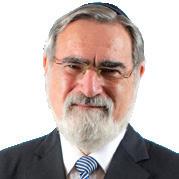
Iargued in my Covenant & Conversation for parshat Kedoshim that Judaism is more than an ethnicity. It is a call to holiness. In one sense, however, there is an important ethnic dimension to Judaism.
It is best captured in the 1980s joke about an advertising campaign in New York. Throughout the city there were giant posters with the slogan, “You have a friend in the Chase Manhattan Bank.”
Underneath one, an Israeli had scribbled the words, “But in Bank Leumi you have mishpachah.” Jews are, and are conscious of being, a single extended family.
This is particularly evident in this week’s parsha. Repeatedly we read of social legislation couched in the language of family:
When you buy or sell to your neighbour, let no one wrong his brother. (Lev. 25:14)
If your brother becomes impoverished and sells some of his property, his near redeemer is to come to you and redeem what his brother sold. (Lev. 25:25)
If your brother is impoverished and indebted to you, you must support him; he must live with you like a foreign resident. Do not take interest or profit from him, but fear your G-d and let your brother live with you. (Lev. 25:35-36)
If your brother becomes impoverished and is sold to you, do not work him like a slave. (Lev. 25:39)
“Your brother” in these verses is not meant literally. At times it means “your relative”, but mostly it means “your fellow Jew”. This is a distinctive way of thinking about society and our obligations to others. Jews are not just citizens of the same nation or adherents of the same faith. We are members of the same extended family. We are – biologically or electively – children of Abraham and
Sarah. For the most part, we share the same history. On the festivals we relive the same memories. We were forged in the same crucible of suffering. We are more than friends. We are mishpachah, family.
The concept of family is absolutely fundamental to Judaism. Consider the book of Genesis, the Torah’s starting-point. It is not primarily about theology, doctrine, dogma. It is not a polemic against idolatry. It is about families: husbands and wives, parents and children, brothers and sisters.
At key moments in the Torah, G-d Himself defines His relationship with the Israelites in terms of family. He tells Moses to say to Pharaoh in His name: “My child, My firstborn, Israel” (Ex. 4:22). When Moses wants to explain to the Israelites why they have a duty to be holy, He answers, “You are children of the Lord your G-d” (Deut. 14:1). If G-d is our parent, then we are all brothers and sisters. We are related by bonds that go to the very heart of who we are.
The prophets continued the metaphor. There is a lovely passage in Hosea in which the prophet describes G-d as a parent teaching a young child how to take its first faltering steps: “When Israel was a child, I loved him, and out of Egypt I called My son… It was I who taught Ephraim to walk, taking them by the arms… To them I was like one who lifts a little child to the cheek, and I bent down to feed them.” (Hosea 11:1-4).
The same image is continued in rabbinic Judaism. In one of the most famous phrases of prayer, Rabbi Akiva used the words Avinu Malkeinu, “Our Father, our King”. That is a precise and deliberate expression. G-d is indeed our sovereign, our lawgiver and our judge, but before He is any of these things He is our parent and we are His children. That is why we believe Divine compassion will always override strict justice.
This concept of Jews as an extended family is powerfully expressed in Maimonides’ Laws of Charity:
The entire Jewish people and all those who attach themselves to them are like brothers, as it states: “You are children of the Lord your G-d” [Deuteronomy 14:1]. And if a brother will not show mercy to a brother, who will show mercy to them? To whom do the poor of Israel lift up their eyes? To the Gentiles who hate them and pursue them? Their eyes are turned to their brethren alone. (Mishneh Torah, Laws of Gifts to the Poor, 10:2)
This sense of kinship, fraternity and the family bond, is at the heart of the idea of Kol Yisrael arevin zeh bazeh, “All Jews are responsible for one another.” Or as Rabbi Shimon bar Yohai put it, “When one Jew is injured, all Jews feel the pain.”
Why is Judaism built on this model of the family? Partly to tell us that G-d did not choose an elite of the righteous or a sect of the likeminded. He chose a family – Abraham and Sarah’s descendants — extended through time. The family is the most powerful vehicle of continuity, and the kinds of changes Jews were expected to make to the world could not be achieved in a single generation. Hence the importance of the family as a place of education (“You shall teach these things repeatedly to your children…” [Deut. 6:7]) and of handing the story on, especially on Pesach through the Seder service.
Another reason is that family feeling is the most primal and powerful moral bond. The scientist J. B. S. Haldane famously said, when asked whether he would jump into a river and risk his life to save his drowning brother, “No, but I would do so to save two brothers or eight cousins.” The point he was making was that we share 50 per cent of our genes with our siblings, and an eighth with our cousins. Taking a risk to save them is a way of ensuring that our genes are
PARSHA WEEKLY PARSHAT BEHAR-BECHUKOTAI 5783 • 2023 WEEKEND OF INSPIRATION SPECIAL
20
PARSHAT HASHAVUA CHIEF RABBIS
passed on to the next generation. This principle, known as “kin selection”, is the most basic form of human altruism. It is where the moral sense is born. That is a key insight, not only of biology but also of political theory. Edmund Burke famously said that “To be attached to the subdivision, to love the little platoon we belong to in society, is the first principle (the germ as it were) of public affections. It is the first link in the series by which we proceed towards a love to our country, and to mankind.” Likewise Alexis de Tocqueville said, “As long as family feeling was kept alive, the opponent of oppression was never alone.”
Strong families are essential to free societies. Where families are strong, a sense of altruism exists that can be extended outward, from family to friends to neighbours to community and from there to the nation as a whole.

It was the sense of family that kept Jews linked in a web of mutual obligation despite the fact that they were scattered across the world. Does it still exist? Sometimes the divisions in the Jewish world go so deep, and the insults hurled by one group against another are so brutal that one could almost be persuaded that it does not. In the 1950s Martin Buber expressed the belief that
the Jewish people in the traditional sense no longer existed. Knesset Yisrael, the covenantal people as a single entity before G-d, was no more. The divisions between Jews, religious and secular, orthodox and non-orthodox, Zionist and non-Zionist, had, he thought, fragmented the people beyond hope of repair.
Yet that conclusion is premature for precisely the reason that makes family so elemental a bond. Argue with your friend and tomorrow he may no longer be your friend, but argue with your brother and tomorrow he is still your brother. The book of Genesis is full of sibling rivalries but they do not all end the same way. The story of Cain and Abel ends with Abel dead. The story of Isaac and Ishmael ends with their standing together at Abraham’s grave. The story of Esau and Jacob reaches a climax when, after a long
separation, they meet, embrace and go their separate ways. The story of Joseph and his brothers begins with animosity but ends with forgiveness and reconciliation. Even the most dysfunctional families can eventually come together. The Jewish people remains a family, often divided, always argumentative, but bound in a common bond of fate nonetheless. As our parsha reminds us, that person who has fallen is our brother or sister, and ours must be the hand that helps them rise again.
AROUND THE SHABBAT TABLE:
• Why do you think families so often argue?
• Can you join a family you are not born into? Can you join the Jewish people even if you were not born a Jew?
• Do you feel related to Jews from other parts of the world?
1. Mechilta de-Rabbi Shimon bar Yochai on Exodus 19:6.
2. Edmund Burke (1729–1797), Reflections on the French Revolution: The Harvard Classics, 1909–14.
3. Alexis de Tocqueville, Democracy in America , Chapter XVII, “Principal Causes Which Tend to Maintain the Democratic Republic in the United States.”
PARSHA WEEKLY PARSHAT BEHAR-BECHUKOTAI 5783 • 2023 WEEKEND OF INSPIRATION SPECIAL
PARSHAT HASHAVUA CHIEF RABBIS
Argue with your friend and tomorrow he may no longer be your friend, but argue with your brother and tomorrow he is still your brother.
Jerusalem / Seek and Find
Rabbi Menachem Leibtag Tanach Study Center | Yeshivat Har Etzion
The Torah never specifies the precise geographic location of where the permanent Bet HaMikdash is to be constructed. Instead, the site is consistently referred to as “the one which G-d will choose” (“HaMakom asher yivchar Hashem”).
However, we do find a very obscure hint regarding how we are to find this site: “l’shichno ti’drshu, u’bata shama” (Devarim 12:5) – G-d will only show us the site if WE look for it. This ‘hide and seek’ type relationship is reflective of every Divine encounter. To find G-d, man must SEARCH for Him.
According to these psukim, this principle applies to the nation in same manner as it applies to the individual. [As we say in the daily Ashrei: “karov Hashem l’chol kor’av” – G-d is close to those who call out to Him.]
When Am Yisrael as a nation, begins a serious search for G-d, then G-d will show them the proper location to build the Mikdash.
The generation of Yehoshua, despite their military conquests, did not succeed in establishing the permanent Mikdash (after conquering the Land). Instead, they erected the temporary Mishkan in Shilo. There it remained, quite neglected, during the entire time period of the Judges. After the city of Shilo was destroyed by the Phlishtim (during the time of Eli / see Shmuel chapters 4-6) both the Mishkan and the “aron” wandered from site to site. It was only during the time period of David haMelech that Bnei Yisrael actively aspired to build the Mikdash.
For example, when David became king over all of Israel (see II Shmuel 5:1-9), his first act was to conquer the city of Jerusalem. His next project was to gather the nation in order to bring the “aron” (the holy ark) to his new capital city (see II Shmuel chapter 6). Note how Divrei ha’yamim describes how David explained his plan (and the reason) to the nation: “David said to the entire congregation of Israel: If you approve, and this is from G-d (the events of David’s rise to power), let us go forward and invite all our brethren in the land of Israel, together with the KOHANIM and LEVIIM and gather together, IN ORDER TO BRING BACK to us G-d’s HOLY ARK – ‘ki lo DRASH’NU’HU b’ymei Shaul’ – for during the time of Shaul WE DID NOT SEEK IT” (I Divrei Hayamim 13:2-3)
David Ha’melech notes how the “aron” had been neglected during the generation of Shaul at the national level. In contrast to Shaul, David ha’melech considered bringing the “aron” to Yerushalayim as his highest national priority.
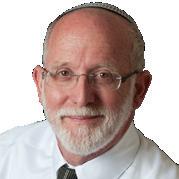
After the “aron” finally arrived in Jerusalem, the next step in David’s master plan was to build a permanent house for the “aron”, i.e. the Bet Ha’Mikdash in Yerushalayim: “When the King was settled in his palace and G-d has granted him safety from his enemies [he’niach lo m’kol oyvav m’saviv], the King said to Natan the prophet: Here I am dwelling in a HOUSE of cedar wood, while the ‘aron’ is dwelling only in a TENT!” (see II Shmuel 7:1-2)
Even though G-d informed David that Am Yisrael would have to wait another generation before the Temple could be built (in the next generation by his son Shlomo,
see II Shmuel chapter 7), its precise site was already designated in David’s own lifetime (see I Divrei Ha’yamim 22:1). In fact, David haMelech himself prepared all the necessary building materials (see the remainder of that chapter).
If you read the above sources carefully, you’ll see that the underlying reason for G-d’s decision to delay its construction for one more generation stemmed from the need to wait until its ‘function’ – to make a Name for G-d – could be properly fulfilled.
‘Jerusalem’ is destined to become more than just the city that houses the Temple. Ideally, Jerusalem should become the National Cultural and Religious Center of the Jewish people, while making a Name for G-d. This aspiration is found in the prophecies of most all of the later prophets. For example:

“For Jerusalem will be called the city of Truth (“ir ha’emet”), and the mountain of the Lord of Hosts – “har ha’Kodesh” (see Zecharya 8:3).
“For out of Zion will come forth Torah and the word of the Lord from Jerusalem” (see Isaiah 2:3).
Today, be it for halachic, technical, or political reasons, we are not permitted to rebuild the Bet HaMikdash.
Until the proper time comes, this aspiration remains our national dream and an everlasting prayer. Nonetheless, to rebuild the city of Jerusalem as our National Center – a city of Truth, Justice, and Sanctity – is not only permitted, it is our duty. In our own generation, G-d has opened for us a historic opportunity. The achievement of this goal remains our national responsibility.
PARSHA WEEKLY PARSHAT BEHAR-BECHUKOTAI 5783 • 2023 WEEKEND OF INSPIRATION SPECIAL PARSHAT HASHAVUA
IN
22
WILL BE
BOREHAMWOOD FOR SHABBAT
Yichus: A BLESSING or a CURSE?
Rabbi Yehoshua Grunstein Director of Development, North America, Tzohar

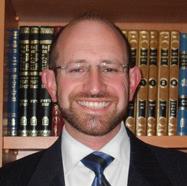
Our Parsha, delineating the blessings versus the curses we will receive for our observance [for lack therof] of Mitzvot, seems to divide between them neatly, with the first parts describing the blessings [21/313] and the next the curses [14-43]. However, in the midst of what seems to be the curses [verse 42] comes the following, seemingly misplaced “blessing” oriented message, known to use from the Slichot: “And I will remember the covenant of Yaakov, and that of Yitzchak and that of Avraham I will remember and the land I will recall”
What is this beautiful blessing, connoting how G-d will recall that we are the greatgrandchildren of the patriarchs, doing in the midst of the curses that precede and proceed it?
Explains the Shla”h [R’ Yishayahu Horowitz, Bechukotai 4] that indeed this is not a blessing but rather a curse: someone wicked, doing the wrong and even tragic things is terrible, but even worse is a קידצ ןב עשר, a wicked man who came from a righteous home as “he saw his father doing the right things, and he doesn't continue the traditions of his forbears!”
Thus, G-d is telling the Jewish people that not only will they be punished for their actions, but their actions are all the more severe as they come from “good stock” and still did what's wrong!
Great people in our family tree can be either a source of blessing or, G-d forbid, the opposite. It’s in our hands to insure that it be the former and not the latter.
PARSHA WEEKLY PARSHAT BEHAR-BECHUKOTAI 5783 • 2023 WEEKEND OF INSPIRATION SPECIAL
HASHAVUA
PARSHAT
WILL BE IN BIRMINGHAM FOR SHABBAT 23
Heter Mechirah
Rabbi Hershel Schachter Rosh Yeshivah, Rabbi Isaac Elchanan Theological Seminary of Yeshiva University


The land shall observe a Shabbos rest for Hashem. (Vayikra 25:2)
There is an issur derabbanan of amirah l’nochri (instructing a non-Jew to perform a forbidden activity) with regard to performing melachah on Shabbos. The Gemara in Bava Metzia questions whether amirah l’nochri is a general rabbinic prohibition that applies to all issurei Torah, leaving the matter unresolved. The Ra’avad rules stringently, maintaining, in disagreement with the Rambam, that it is prohibited to have a non-Jew plant kilayim. Tosfos concurs with the Ra’avad that amirah l’nochri applies to all issurei Torah
In the case of a Jew instructing a nonJew to work his field in Eretz Yisrael or renting his field in Eretz Yisrael to a non-Jew during shemittah, it seems that there is a more serious prohibition. The Gemara in Avodah Zarah draws a comparison between shevisas behemto (the resting of one’s animal) on Shabbos and shevisas sadeihu (the resting of one’s field) during shemittah. If a Jew provides a nonJew with his animal to perform melachah on Shabbos, he violates the issur d’oraisa of shevisas behemto, not merely the issur derabbanan of amirah l’nochri. One must ensure that no melachah be performed with his animal in Shabbos, even if he is not the one performing the melachah
The Tosfos Ri”d points out that the Gemara seems to have understood the passuk of ‘דל תבש ץראה התבשו in this way as well. Thus, the Torah requires that
no melachah be performed on one’s field during shemittah, and not only that one must personally abstain from working the land. Accordingly, a Jewish owner of a farm would violate an issur d’oraisa if he were to have a non-Jew perform work on his farm during shemittah Amirah l’nochri during shemittah constitutes an issur d’oraisa, not merely an issur derabbanan
Many farmers in Eretz Yisrael employ a heter mechirah, in which land in Eretz Yisrael is sold to non-Jews for the duration of the shemittah year in order to avoid the stringencies of shemittah. One of the stipulations of the heter mechirah issued in the late 1800s was that melachos (d’oraisa) could only be performed on the land by non-Jews. However, given the understanding of ‘דל תבש ץראה התבשו that emerges from the Gemara, it is not at all clear that hiring non-Jewish workers lowers the level of the issur. As in the case of shevisas behemto on Shabbos, amirah l’nochri to work one’s land on shemittah may be an issur d’oraisa.

The simple understanding of ‘דל תבש ץראה התבשו is that it represents not only an issur aseh (a prohibition expressed as a positive commandment), but a mitzvas aseh as well – to see to it that all of one’s land lies fallow over the shemittah year. This point may be significant with regard to the implementation of the heter mechirah as well. Years ago, after the Medinah was established, the Chazon Ish was opposed to relying on the heter mechirah, and Rav Binyomin Mendelson, rav

of Moshav Komemiyut, explained that his position was related to the mitzvah of ‘דל תבש ץראה התבשו
The simple reading of ‘דל תבש ץראה התבשו is that there is a mitzvah to let every inch of land owned by a Jew in Eretz Yisrael lie fallow during shemittah. Accordingly, selling the land to a non-Jew, aside from avoiding the violation of the issurim of shemittah, results in the loss of an opportunity to fulfill this mitzvah. Thus, unlike mechiras chametz, which is a ha’aramah to avoid violation of אצמי לבו הארי לב , the heter mechirah is a ha’aramah that precludes the fulfillment of a mitzvah that would have otherwise been fulfilled. Ha’aramah to avoid an aveirah is permissible, but ha’aramah to avoid a mitzvah is not. This explains the opposition of the Chazon Ish to the heter mechirah.
As mentioned, the mitzvah of ‘דל תבש ץראה התבשו is fulfilled by anyone who owns a field in Eretz Yisrael and leaves it fallow over shemittah. Thus, it is a worthwhile endeavor to become a partner in a field before shemittah in order to fulfill this mitzvah, a practice that has become more popular recently.
A similar practice has been employed with regard to the mitzvah of zero’a, lechayayim, and keivah (the foreleg, jaw, and maw). One may become a partner in a beheimah kesheirah in Eretz Yisrael, and thereby fulfill the mitzvah of presenting these sections of the animal to a Kohen.
Adapted from Rav Schachter on the Parsha II.
PARSHA WEEKLY PARSHAT BEHAR-BECHUKOTAI 5783 • 2023 WEEKEND OF INSPIRATION SPECIAL
24
PARSHAT HASHAVUA SENIOR ROSHEI YESHIVA
Yom Yerushalayim with Bnei Akiva, Yom Yerushalayim with Bnei Akiva, Borehamwood Shul & Mizrachi Borehamwood Shul & Mizrachi
Thursday 18 May 2023/28 Iyar 5783

Mincha 7.30pm at Borehamwood Shul, Croxdale Road followed by Tefillah Chagigit for Yom Yerushalayim

With Mizrachi's Six Days of Miracles
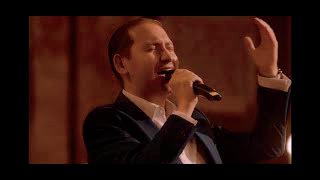
With addresses from Rav
Mizrachi
Bnei Akiva


 Avichai Goodman
Avichai Goodman
ד סב ! םילשורי םוי
Music from Chazan Jonny Turgel
Rabbi Andrew Shaw
Renewal vs Change
Rabbi Shalom Rosner Yeshivat Kerem B’Yavneh

If you follow My statutes and observe My commandments and perform them (Vayikra 26:3)ִ
Much ink has been spilled explaining this pasuk. The Ohr Hachaim Hakadosh has 42 different interpretations of the this pasuk. We will highlight an important and relevant lesson derived from this pasuk by the Menachem Tzion, Rav Menachem Sacks, the son-in law of Rav Tzvi Pesach Frank.
In every generation there are movements among even observant Jews to “modernize” Judaism in an unhealthy way. Such individuals desire to maintain the “logical” principles of the Torah and they claim that in order to preserve our religion in a modern society, we should relinquish the irrational mitzvot, known as “chukim”. In an advanced society, we need to adapt our religion to the times.
The Gemara (Shabbat 31b) states that when a person passes away, one of the
(the latter would reflect – kavata Torah La’itim). The influence should be from within the Torah environment to the outside world and not the opposite. Some people try to adapt the Torah to modern times. They suggest that we be “openminded” about contemporary norms and values. We say that, on the contrary, we need to open our minds to accept the Torah and adapt our lives to it.
History testifies that once change is instituted at the “chukim” level, it eventually leads to the demise of the observance of
“ mesahane ” (change). It is important to constantly evaluate how to perform mitzvot properly in different situations. During the covid period gedolei hador were challenged with many new halachic questions that arose and many treatises were written to address those issues. As Hazal tell us “ein bet midrash b’li chidush”. However, to be “mesahane” – change halacha to adapt to modern times is prohibited. The Menachem Tzion interprets our pasuk as follows. If you follow my statues (“im b’hukotai telechu”), only if you keep the mitzvot, the chukim that may be difficult to comprehend, only then – will you continue to observe the rational mitzvot. Once chukim are ignored, other Mitzvot are later disregarded as well.
During this period between Pesach and Shavuot as we prepare for our celebration of Matan Torah, may we strengthen our learning and observance of Torah and

PARSHA WEEKLY PARSHAT BEHAR-BECHUKOTAI 5783 • 2023 WEEKEND OF INSPIRATION SPECIAL INSPIRATION :םָתֹא םֶתיִׂשֲעַו ורְמְׁשִת יַתֹוְצִמ־תֶאְו וכֵלֵת יַתֹקֻחְב־םִא
26
Once chukim are ignored, other Mitzvot are later disregarded as well.
Sorry, We Made a Mistake
Rabbanit Yemima Mizrachi Popular Torah teacher and author


This week I have been talking with sweet female students who have come from the United States for a week. As always, when we are not on our phones, we just talk about it. About addiction, about wanting to quit, about being able to talk face to face again. At the end of the conversation, a sweet nineteen-year-old girl came up to me and told me that she can not imagine moving on after falling off the wagon a bit in terms of modesty. She feels like a liar, she looks like a righteous daughter of Israel, and inside her – this terrible lie, or is it actually her truth.
There are boys and girls who walk among us certain that they are lying: beautiful on the outside and ugly on the inside, and all they need is this wonderful speech from Parashat Bechukotai, in which G-d promises, “I will be present in your midst.” And Rashi, in one of his wonderful commentaries, interprets, “I will, as it were, walk with you in the Garden of Eden, as though I were one of yourselves
and you will not be frightened of Me. One might think that this implies: you will not fear (reverence) Me! Scripture however states, ‘but I will be your G-d’.” Wow G-d promises that G-d “walks” in each of us as it was in Gan Eden, as it was in reality before sin. This is the true face of everyone! If this is so, then why the dirty feeling? Here is the second part of Rashi’s words: precisely because G-d is among you. This awe that you feel is precisely the proof that your soul is so pure, for otherwise you would not be so shocked at yourself...
And what do we do now?
Only the one who understands that G-d is in him, who is a bearer of heaven, can fall, say “I was wrong” and recover. That is why the celebration of Har Meron is always celebrated before the celebration of Har Sinai. Who will climb the mountain of the Lord? Only those who rehabilitate themselves after a fall. Rabbi Akiva built a huge life enterprise, but he admitted that he had obviously made a
mistake. He started all over again. Rabbi Shimon Bar Yochai opened the eyes of the “ordinary” people, turned them into a wave of bones, and when he realized that he was wrong, (!) he gave this people the most popular holiday, Lag Ba’Omer. From Har Meron it is already possible to climb Har Sinai.
Judaism is very simple, I explained to the sad girl. Unlike the new psychic practices that tell you, “It’s not you,” and that only make you feel more guilty, Judaism says simply: man must admit the evil he has done, just as he acknowledges the good he has. What a reformed society we would become if we, as educators, could also say, “I was wrong.” Gan Eden is not a utopia, it is always there... The feeling that we have fallen testifies to its existence like a thousand witnesses. Have you fallen? Get up, my beautiful one, and go, G-d is with you now.
PARSHA WEEKLY PARSHAT BEHAR-BECHUKOTAI 5783 • 2023 WEEKEND OF INSPIRATION SPECIAL INSPIRATION
27
RAV DOV BER COHEN
HALE | RABBANIT ATARA
EIS BOREHAMWOOD
& ELSTREE | RABBANIT
PESHA FISHER SOUTHGATE
& COCKFOSTERS RAV
BINNY FREEDMAN HENDON
& HAMPSTEAD GARDEN SUBURBS | DR TOVA GANZEL SOUTH HAMPSTEAD |
RAV JEREMY GIMPEL EDGWARE | RABBANIT TEHILA
GIMPEL EDGWARE | RAV YAMIN GOLDSMITH MAIDA
VALE | TAMIR GOODMAN SOUTH HAMPSTEAD | RAV
YEHOSHUA GRUNSTEIN BIRMINGHAM | RAV SHALOM
HAMMER CHIGWELL | RABBANIT KAREN HOCHHAUSER
HENDON | GIL HOFFMAN BUSHEY | RAV JESSE HORN
NORTH MANCHESTER| RAV ALEX ISRAEL HENDON | RAV
ARI KAHN HAMPSTEAD GARDEN SUBURBS | RAV DAVID
KATZ HENDON | RAV AVI KAY CHEADLE | RABBANIT
DEVORAH KAY CHEADLE | RAV JOEL KENIGSBERG PINNER |
RAV SHLOMO KIMCHE WESTERN MARBLE ARCH | RAV
MENACHEM LEIBTAG BOREHAMWOOD & ELSTREE | RAV
ANTHONY MANNING STANMORE | RAV DAVID MILSTON
EDGWARE & MILL HILL | RAV DANNY MIRVIS NORTH MANCHESTER | RAV DORON PEREZ HENDON & KINLOSS |
SIVAN RAHAV MEIR KINLOSS & HENDON | RAV YOSEF ZVI
RIMON HENDON | RAV SHARON SHALOM WOODFORD
FOREST | RAV ELIYAHU SILVERMAN WOODSIDE PARK |
RAV JOHNNY SOLOMON GOLDERS GREEN & HAMPSTEAD |
RAV REUVEN TARAGIN EDGWARE | RABBANIT SHANI
TARAGIN EDGWARE | RAV GIDEON WEITZMAN GOLDERS
GREEN & HAMPSTEAD
HAMIZRACHI Final 5.indd 10 05/05/2023 13:20































































 Rosh Yeshivah, Jerusalem College of Technology | Founder and Chairman, Sulamot and La'Ofek
Rosh Yeshivah, Jerusalem College of Technology | Founder and Chairman, Sulamot and La'Ofek





















 Avichai Goodman
Avichai Goodman



